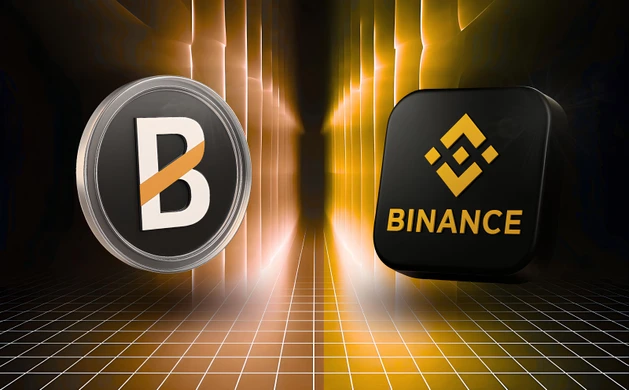Best Crypto Exchanges in Saudi Arabia
.webp)
Summary: Cryptocurrency trading in Saudi Arabia operates within an evolving regulatory framework, overseen by the Saudi Central Bank (SAMA) and the Capital Market Authority (CMA). While digital assets are not recognized as legal tender, individual trading is permitted.
Here is a list of the five best crypto exchanges that support Saudi Riyal (SAR) deposits:
Bybit is the best crypto exchange in Saudi Arabia as it provides Shariah-compliant trading services, an Arabic user interface and accepts SAR deposits.
Fees
0.1% Spot Trading Fee
Available Assets
1,800+ Cryptocurrencies
SAR Deposit Methods
Credit Card, Debit Card, Google Pay
Top Crypto Trading Platforms in Saudi Arabia
Cryptocurrency trading in Saudi Arabia operates under the oversight of the SAMA and the CMA. Although digital currencies aren't formally acknowledged as legal currency, Saudi citizens can legally trade cryptocurrencies on global exchanges that facilitate Saudi Riyal (SAR) deposits. Below is a comparison table of the most reliable crypto exchanges for Saudi Arabian investors.
1. Bybit
Bybit is Saudi Arabia’s top crypto exchange, providing Shariah-compliant products, such as spot trading, DCA trading bots, and spot grid bots. The interface can also be used in Arabic. Since its inception in 2018, it has expanded globally, serving over 69 million users across more than 160 countries.
There are over 1,800 digital assets for spot trading. It also offers access to derivatives markets, featuring futures, perpetual contracts, and leveraged trading options with up to 125x leverage. Additional trading tools include TradeGPT, which leverages AI-driven insights to inform smarter trading decisions.
The exchange has a copy trading feature that enables users to replicate successful strategies of top-performing traders. Bybit also provides passive income options through "Bybit Earn," allowing users to grow their assets via staking, flexible savings, crypto lending, and liquidity mining.
Platform Highlights:
- Fees: 0.1% fees for spot trading.
- Supported Assets: Over 1,800 cryptocurrencies.
- Regulation & Licensing: Holds a VARA license in Dubai and is available in Saudi Arabia.
- SAR Deposit Methods: Bank transfers, debit cards, credit cards, Google Pay, Apple Pay, and P2P trading options.

2. Rain
Rain is based in Bahrain and is considered the Middle East’s most trusted exchange. Launched in 2017, it has grown in popularity, earning trust through rigorous licensing by the Central Bank of Bahrain. Saudi traders appreciate Rain’s adherence to strict cybersecurity and banking standards.
The exchange provides a user-friendly interface, allowing users to swap over 70 digital assets. Rain’s comprehensive portfolio management tools offer clear visibility of asset performance across multiple devices, enabling traders to make informed investment decisions at a glance.
Advanced traders benefit from Rain Pro, a premium service featuring sophisticated market analysis tools, conditional order types, and real-time advanced charting. Additionally, Rain offers personalized over-the-counter (OTC) trading services for high-volume transactions.
Platform Highlights:
- Fees: Maker fees of 0.1%, taker fees of 0.25% per trade.
- Supported Assets: Over 70 cryptocurrencies.
- Regulation & Licensing: Licensed and regulated by the Central Bank of Bahrain.
- SAR Deposit Methods: Bank transfers, Fawri, Fawri+, credit cards, and debit cards.

3. Gate.io
Gate.io provides traders access to an extensive selection of more than 3,800 cryptocurrencies for trading on spot, futures, and options markets with 125x leverage. It is recognized for its vast market depth, diverse crypto offerings, and strong reputation among experienced traders.
The platform frequently introduces emerging blockchain projects through its "Pilot" program, allowing users early access to trending tokens. It also facilitates decentralized trading services, offering cross-chain swaps and supporting multi-chain DeFi staking through its integrated Web3 wallet.
Gate.io enhances user engagement through unique community features such as 'Moments,' a news feed offering real-time crypto industry updates. Users particularly appreciate Gate Pay, enabling convenient global crypto transactions, and the Gate Card for easy everyday payments.
Platform Highlights:
- Fees: Spot trading fees start at 0.2%.
- Supported Assets: Over 3,800 cryptocurrencies.
- Regulation & Licensing: Not licensed but remains accessible from Saudi Arabia.
- SAR Deposit Methods: Credit cards and debit cards.

4. Binance
Binance is a trusted platform for Saudi Arabian traders, known for its comprehensive suite of trading tools and copy trading platform. It is currently the largest crypto exchange globally, serving over 270 million users across 180 countries, and supporting the trading of 350+ digital currencies.
It supports diverse trading preferences by offering spot, margin, and futures trading with 100x leverage. Binance also provides earning options through its "Binance Earn" service, enabling users to gain attractive yields via crypto staking, savings products, and liquidity farming.
Saudi traders interested in digital collectibles and blockchain gaming can use the integrated NFT marketplace. Binance also routinely publishes its proof-of-reserves and implements rigorous security protocols, reinforcing its global reputation for transparency and trustworthiness.
Platform Highlights:
- Fees: Spot trading fees start at 0.1%.
- Supported Assets: Over 350 cryptocurrencies.
- Regulation & Licensing: Licensed in Dubai, Abu Dhabi, and Bahrain, and is accessible from Saudi Arabia.
- SAR Deposit Methods: Apple Pay, Google Pay, credit cards, and debit cards.

5. KuCoin
KuCoin is recognized globally for its expansive asset selection and impressive staking yields. Launched in 2017, it serves an international community with over 40 million users across 200 countries. There is a vast offering of more than 900 cryptocurrencies for trading and staking.
Saudi users appreciate KuCoin’s comprehensive crypto ecosystem, which includes spot trading, margin trading, and crypto derivatives such as futures contracts. A key feature is KuCoin Earn, where traders can access stable passive income through staking, borrowing, and lending products.
Security remains a top priority, with KuCoin utilizing advanced encryption methods, robust account security measures, and verified Proof-of-Reserves audits, reassuring traders of asset safety. Additionally, KuCoin’s platform is supported by multilingual customer service in Arabic.
Platform Highlights:
- Fees: 0.1% for spot trading.
- Supported Assets: Over 900 cryptocurrencies.
- Regulation & Licensing: Not regulated, but accessible from Saudi Arabia.
- SAR Deposit Methods: Credit cards and debit cards.

Is Crypto Regulated in Saudi Arabia?
Cryptocurrency regulation in Saudi Arabia is overseen by two key entities, the Saudi Central Bank (SAMA) and the Capital Market Authority (CMA). While cryptocurrencies like Bitcoin aren't officially recognized as legal currency, they are not explicitly banned, allowing individuals in Saudi Arabia to legally engage in crypto trading on regulated international platforms.
Financial institutions within the Kingdom are restricted from providing crypto-related services. This approach is designed to mitigate volatility, fraud, and money laundering risks. However, Saudi authorities are proactively exploring blockchain technology, as evidenced by their participation in initiatives like the mBridge cross-border digital currency project.
As the regulatory framework continues to mature, the country has shown growing acceptance of blockchain innovation, highlighted by the approval and establishment of projects such as Nuqtah, Saudi Arabia's first regulated NFT platform.
How is Crypto Taxed in Saudi Arabia?
There is no specific legislation addressing the taxation of digital assets in Saudi Arabia, leaving individuals and businesses to navigate a complex framework. Here’s a quick summary of the current tax implications:
- Individual Tax: Saudi nationals are obligated to pay Zakat, an Islamic wealth tax, at a rate of 2.5% on their assessable assets, which may include cryptocurrency holdings if they meet certain criteria.
- Value Added Tax (VAT): VAT is a standard rate of 15% that may apply to cryptocurrency transactions involving goods or services, though clear guidelines are still developing.
- Corporate Tax: For corporate entities, taxation depends on ownership structure. Saudi-owned companies are subject to Zakat at 2.5% on their net worth, while foreign-owned or mixed-ownership companies face a 20% corporate income tax on profits.
The Saudi government, through entities like the Saudi Central Bank (SAMA) and the Zakat, Tax and Customs Authority (ZATCA), is actively exploring the development of a comprehensive regulatory framework for cryptocurrencies.
Cryptocurrency Adoption in Saudi Arabia
By 2025, Saudi Arabia's cryptocurrency market is projected to generate approximately US$498.2 million in revenue, with a user base reaching around 7.4 million, equating to nearly 19.5% of the country's population.
Key factors fueling this growth include widespread adoption of blockchain technology, rising participation in decentralized finance (DeFi), and increased utilization of cryptocurrencies for international transfers.

How to Buy Bitcoin in Saudi Arabia
Saudi investors interested in purchasing Bitcoin should choose regulated crypto exchanges that support Saudi Riyal (SAR) deposits. Although Saudi Arabia maintains a cautious regulatory stance, you can safely buy Bitcoin by following these steps:
- Choose Exchange: Select a trusted global cryptocurrency exchange that supports deposits in Saudi Riyal (SAR). Platforms like Binance, Bitget, and Rain are popular choices among Saudi users.
- Create Account: Register on your chosen platform and complete the necessary identity checks, typically requiring official documentation like your Saudi National ID or passport, alongside proof of residency.
- Deposit Funds: Add Saudi Riyal to your trading account using approved methods, such as local bank transfers or accepted debit and credit card options.
- Purchase Bitcoin: Access the exchange’s trading interface, select the desired amount of Bitcoin you want to buy, review live market rates carefully, and confirm the purchase.
By following these guidelines, Saudi investors can confidently purchase Bitcoin, navigating regulatory considerations while ensuring secure transactions.
Final Thoughts
Cryptocurrency trading in Saudi Arabia presents both opportunities and challenges due to its evolving regulatory environment. Choosing the right exchange becomes essential for secure and compliant trading.
Prioritize platforms aligning with your individual needs, such as Bybit for advanced trading tools, Rain for regional trustworthiness, Binance for copy trading, Gate.io for extensive crypto choices, or KuCoin for staking rewards.
Frequently asked questions
Can I use cryptocurrency wallets in Saudi Arabia?
Yes, cryptocurrency wallets such as hardware wallets (Ledger, Trezor) and software wallets (Trust Wallet, Exodus) are fully legal and accessible in Saudi Arabia. Using personal wallets to store crypto provides greater security compared to holding assets on exchanges.
What is the stance of Islamic finance on cryptocurrency trading in Saudi Arabia?
Cryptocurrency trading can align with Islamic finance principles if specific guidelines are followed. Exchanges like Bybit offer Shariah-compliant trading accounts to cater to Saudi investors seeking adherence to Islamic law, ensuring transactions avoid elements like excessive speculation or uncertainty (gharar).
How can Saudi traders safely withdraw crypto profits into their local bank accounts?
Saudi traders typically convert cryptocurrency profits into Saudi Riyal (SAR) through exchanges that support local withdrawals, such as Rain or Binance P2P. Withdrawals are securely processed via bank transfers or other regulated channels approved by these platforms.
Are cryptocurrency transactions anonymous in Saudi Arabia?
While cryptocurrencies are generally viewed as providing privacy, most exchanges operating in Saudi Arabia enforce strict Know Your Customer (KYC) requirements. This means transactions are traceable and linked to user identities, reducing anonymity to comply with anti-money laundering (AML) regulations.

Written by
Tony Kreng
Lead Editor
Tony Kreng, who holds an MBA in Business & Finance, brings over a decade of experience as a financial analyst. At Datawallet, he serves as the lead content editor and fact-checker, dedicated to maintaining the accuracy and trustworthiness of our insights.










